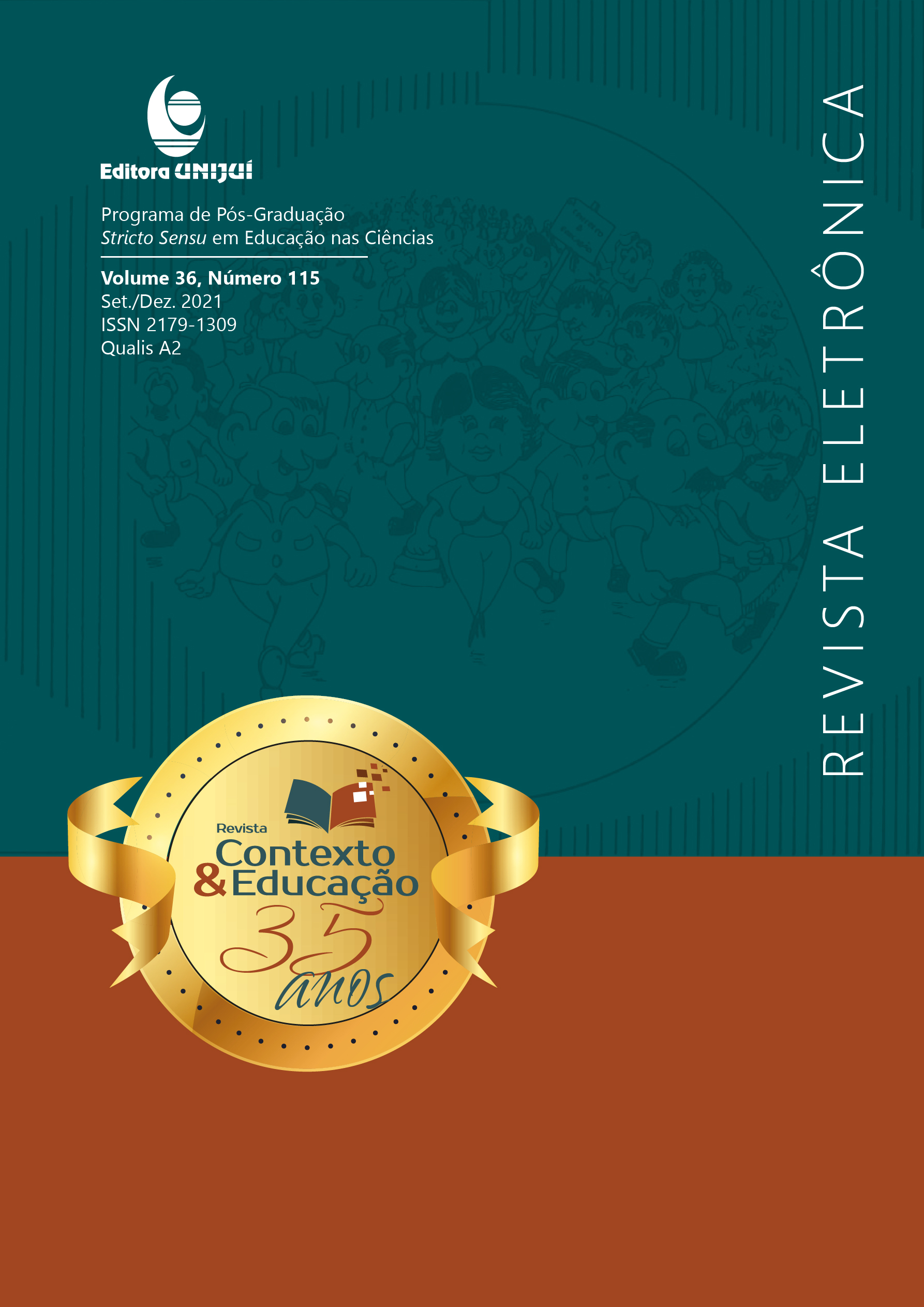Conceptual representations of mercosur teachers about transversality
CONCEPTUAL REPRESENTATIONS OF MERCOSUR TEACHERS ABOUT TRANSVERSALITY
DOI:
https://doi.org/10.21527/2179-1309.2021.115.11475Keywords:
Learning, Contextualization, School Life, Continuing EducationAbstract
This study aims to investigate the conceptions of Brazilian, Argentine and Uruguayan teachers about the transversality in basic education. It is an exploratory qualitative research.
96 professors working in public schools located in the peripheral regions of cities that are part of the triple border Brazil, Argentina and Uruguay participated. Data were collected through questionnaires, treated and categorized through Content Analysis. The results give rise to four associated categories: i) contextualization; ii) meaningful learning; iii) training of subjects; and iv) interdisciplinarity. The themes most frequently are similar in the countries surveyed and are related to the Environment and Health. As for the subsidies provided by continuing education for work focused on transversality, Uruguay stands out in relation to Argentina and Brazil. It is concluded that the representations about transversality are about the transformation of concepts, the explanation of values and the inclusion of procedures linked to the student's daily life. Thus, it appears that the insertion of transversality in the educational practices and in the continuous training of the border area is incipient, aiming at expanding the meanings elaborated in the construction of knowledge, overcoming traditional teaching paradigms and bringing the educational segments of these countries closer.
Downloads
Published
How to Cite
Issue
Section
License
By publishing in Revista Contexto & Educação, authors agree to the following terms:
All works are published under the Creative Commons Attribution 4.0 International License (CC BY 4.0), which allows:
Sharing — to copy and redistribute the material in any medium or format;
Adaptation — to remix, transform, and build upon the material for any purpose, even commercially.
These permissions are irrevocable, provided that the following terms are respected:
Attribution — authors must be properly credited, a link to the license must be provided, and any changes made must be indicated.
No additional restrictions — no legal or technological measures may be applied that legally restrict others from doing anything the license permits.
Notices:
The license does not apply to elements that are in the public domain or covered by legal exceptions.
The license does not grant all necessary rights for specific uses (e.g., image rights, privacy, or moral rights).
The journal is not responsible for the opinions expressed in the articles, which are the sole responsibility of the authors. The Editor, with the support of the Editorial Board, reserves the right to suggest or request modifications when necessary.
Only original scientific articles presenting research results of interest that have not been previously published or simultaneously submitted to another journal with the same purpose will be accepted.
Mentions of trademarks or specific products are intended solely for identification purposes and do not imply any promotional relationship by the authors or the journal.
License Agreement (for articles published from October 2025): Authors retain the copyright to their article and grant Revista Contexto & Educação the right of first publication.


